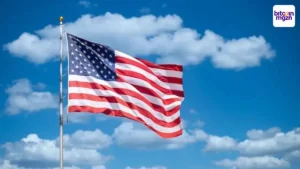De G20-landen buigen zich vanaf vandaag over strengere regels voor bitcoin en andere cryptovaluta. De G20 zal twee afzonderlijke discussies houden, waarin gezocht zal worden naar manieren om gezamenlijk te ageren op het fenomeen en een manier om internationaal regels te stellen aan het gebruik van cryptovaluta’s.
Positief nieuws dus voor de crypto’s, waarvan de koersen weer met dubbele cijfers stijgende zijn, wellicht in antwoord op die komende regulatie.
Argentinië
De eerste vergadering aangaande zal vandaag gehouden worden in Argentinië, dat ditmaal voorzitter is van de G20. De tweede discussie zal morgen plaatsvinden. De precieze agenda en onderwerpen die aan bod zullen komen is nog niet vrijgegeven, maar het volgende statement geeft duidelijk aan welke richting het op zal gaan. De innovatie wordt onderkend maar regulatie is noodzakelijk.
“Fact: the technology behind crypto assets has the potential to promote financial inclusion. At the same time, however, it is important to analyse its implications to financial stability, taks evasion, and financial illegal activities. The issue is an important item on the meeting agenda; delegates will consider a common response that would mitigate the risks without discouraging innovation”
Updates from the recent @g20org meeting. Good news for cryptocurrencies! #g20 #cryptocurrency #bitcoin #crypto pic.twitter.com/V2eySjyUMb
IMF
Zowel de VS, Duitsland, Frankrijk als Japan gaven allen eerder aan gezamenlijk op te willen trekken tegen cryptovaluta’s. Ook Christine Lagarde, president van het Internationaal Monetair Fonds (IMF), gaf een week geleden duidelijk aan hoe er tegen cryptovaluta’s aangekeken moet worden.
Lagarde schreef:
“Regulatory technology and supervisory technology can help shut criminals out of the crypto world. More broadly, we are seeing crypto-asset exchanges in some countries that are subject to know-your-customer requirements.
Distributed ledger technology (DLT) can be used to speed up information-sharing between market participants and regulators. Biometrics, artificial intelligence, and cryptography can enhance digital security and identify suspicious transactions in close to real time.
We also need to ensure that the same rules apply to protect consumers in both digital and non-digital transactions.
The U.S. Securities and Exchange Commission and other regulators around the world now apply the same laws to some initial coin offerings (ICOs) as they do to offerings of standard securities. This helps to increase transparency and alert buyers to potential risks.
But no country can handle this challenge alone.
To be truly effective, all these efforts require close international cooperation. Since crypto-assets know no
borders, the framework to regulate them must be global as well.
Countries will have to decide collectively that this path is worth pursuing. Promisingly, the Group of Twenty (G-20) has agreed to put crypto-assets on the agenda of its November 2018 summit in Argentina”
Positief
Een gezamenlijke internationale oplossing dus in regulatie van de crypto’s. Dit waarbij dezelfde regelgeving telt als voor normale effecten. Niets nieuws onder de zon en geen internationale oorlog tegen de bitcoin maar een duidelijk wetgevend kader waarbinnen cryptovaluta’s verhandeld mogen worden.
Een positievere boodschap kunnen we niet bedenken.
FSB Chair: #crypto-assets do not pose risks to global financial stability at this time. But market is evolving rapidly & further international coordination is warranted. FSB will identify metrics for enhanced monitoring & update #G20 as appropriate #crypto https://t.co/GrzY46Qlby pic.twitter.com/uH0q13aJ7J
Foto: Flickr / Presidencia de la República Mexicana
Inschrijven nieuwsbrief











